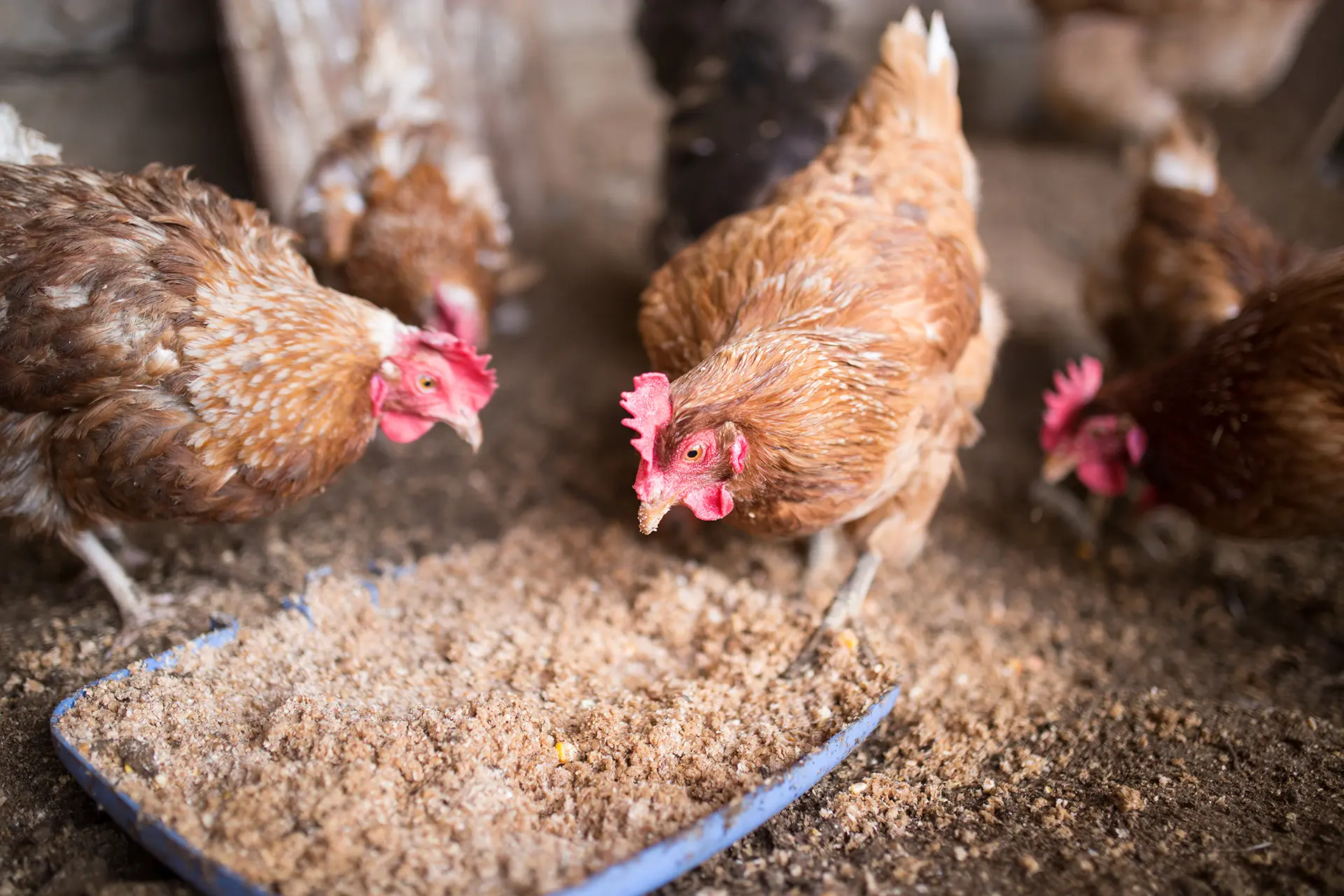
Articles / Films
Poultry Coccidiosis: New Challenges and Possibilities for Disease Control

Poultry parasitic diseases generate huge losses in large-scale production and have a negative impact on production results. Avian coccidiosis is the most frequently diagnosed parasitosis, and its importance in breeding is very significant in terms of health and economy.
by Albert Nakielski, DVM, Specialist of poultry diseases and ornamental birds, Biopoint, Poland. www.biopoint.eu
We can distinguish many Eimeria species that show high host specificity. These parasites can attack broiler chickens, broiler breeders, hens, turkeys, waterfowl and other species of breeding birds.
The disease occurs in birds in two forms:
- Subclinical form of coccidiosis: This is characterised by indigestion, a reduction in daily weight gain and an increase in feed conversion. This type of disease is most commonly reported when infested with less pathogenic Eimeria species (for example Eimeria mitis and Eimeria praecox) or when birds ingest fewer invasive oocysts.
- Clinical form of coccidiosis: In addition to the above-mentioned symptoms, an increase in mortality in the flock is also noted. The cause of this form of the disease is the consumption of a large amount of highly pathogenic coccidia oocysts.
The severity of the clinical course of the disease also depends on the immune status of the animal’s organism, in particular on gut associated lymphoid tissue (GALT).
Common tools for controlling this disease include:
- Preventive procedures: The use of disinfectants and burning out the floor, chemoprophylaxis in the form of coccidiostats in feed as well as immunoprophylaxis in the form of vaccinations and/or herbal preparations in the drinking water or feed.
- Intervention procedures: The use of antiparasitic drugs.
Although coccidiosis has such a huge negative effect on large-scale production, and the poultry farm has a wide range of tools to control it, we have still not achieved sufficient protection of birds from its consequences.
Current animal welfare trends
Driven by consumer expectations, these trends lead to a pressure for significant reduction in coccidiostats in feed or even to an effort to run breeding systems completely devoid of chemotherapeutic agents and drugs in the production cycle.
A search for new tools
In view of the challenges presented above, it is necessary to search for new tools that will show a positive effect in the prevention and treatment of diseases in farmed poultry.
The active ingredients contained in specialised herbal preparations belong to the group of secondary plant metabolites and are referred to as phytoncides. Their positive effect on the animal’s organism has been proven in the course of many studies. Some of them have the ability to limit the multiplication of bacteria, others inhibit the replication of viruses, the development of fungi and parasites including coccidia.
A properly selected mixture of phytoncides can stimulate the secretion of digestive enzymes, reduce the level of cholesterol and glucose in the blood, and also activate the production and release of bile.
Power of plants
In the perspective of infectious diseases, an invaluable property of plant secondary metabolites is their ability to effectively stimulate the immune system. It has been shown that selected active ingredients contained in herbs (for example allicin, echinacoside, eugenol, flavonoids, etc.) can significantly affect the humoral and cellular immunity of poultry.
With regard to coccidiosis, some phytoncides disintegrate calcium receptors in the cell membranes of sporozoites, deform the entire protozoan cell, and damage the walls and membranes of Eimeria‘s developmental forms.
In addition to proper farm biosecurity and advanced immunoprophylaxis, it is the proper functioning of the immune system that is of key importance in the context of limiting the use of chemotherapeutic agents and antibiotics in poultry farming.
The research and development department of BioPoint is responsible for conducting laboratory tests in the course of which the biocidal effectiveness of selected active substances or phytoncide mixtures against selected pathogens are assessed.
In addition to in vitro tests, an extremely important step in the assessment of the resulting complementary feeds and premixes is their use in commercial poultry breeding.
The most reliable confirmation of laboratory analyses is the achievement of positive and repeatable effects of therapy among birds kept in intensive farming. In this article, we present selected clinical cases of broiler chicken coccidiosis in the course of which the Biocox, Biotix S and Coccilin V Plus preparations were used.
Positive effect on health
The conducted laboratory studies and field tests show that the preparations of plant origin available today are more and more advanced in their composition and, most importantly, have a positive effect on the health of birds.
In the course of the field tests presented in this article, preparations of the BioPoint company were used, which contain, inter alia, secondary plant metabolites. Advanced mixtures of phytoncides, essential oils or other ingredients of plant origin may be a key element in the near future leading to a significant reduction in antibiotics in poultry production.